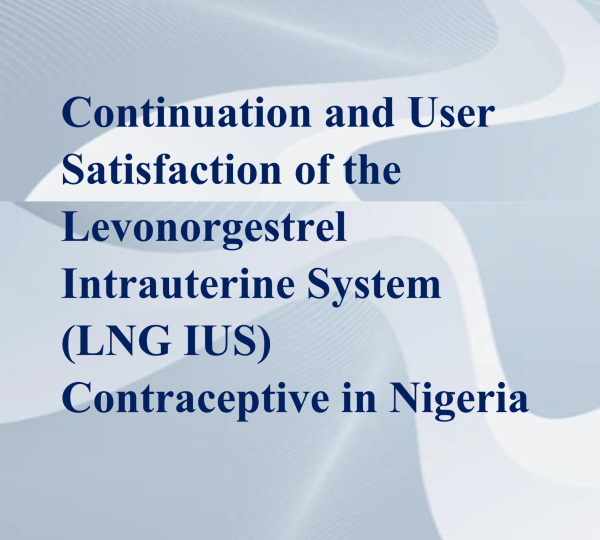Hang-Up, Keep-Up: The Adamawa Journey
North East Nigeria in the recent past has been synonymous with deadly waves of intermittent insurgent attacks. But this is not the only menace it faces. It is equally plagued with a deadly creature that boasts casualty figures unlike any other— the mosquito. Adamawa state is a typical North-Eastern state, with 21 Local Government Areas and a majority of the populace in hard- to- reach locations.
Results from the 2010 National Malaria Indicator Survey showed North East Nigeria as having 63% of households who own at least one Insecticide Treated Net (ITN) but only 30% of children under 5 who were sleeping inside nets. After the 2010 bed net mass campaign, the hang up-keep up rate was certainly not optimal. There were many myths and misconceptions surrounding ITN usage that spread like wildfire and militated negatively against community malaria prevention culture.
Before 2010, it was not uncommon to find ITNs being used for fishing, as curtains or window blinds, abandoned on fences or on streets or tucked away somewhere in peoples abodes. This behaviour was utilised to design messages concerning myths and misconceptions around bed net use.
In 2010, the Global Fund Malaria Phase 2 grant implementation started in Adamawa, with Society for Family Health Nigeria at the helm. Behaviour Change Communication (BCC) is a key aspect of grant interventions. Malaria key messages have been communicated through social mobilisation activities such as dramas, road shows, rallies and interpersonal contact.
Present day.
Mayo- Nguli is a remote settlement in Maiha Local Government Area of Adamawa state, which shares a border with Cameroun. ‘Hard-to-reach’ is an under-stated description of Mayo- Nguli; primarily cattle herders and peasant farmers, its people suffer from abject poverty. There are no tarred roads or pipe-borne water. Social amenities are few and inadequate. In 2013, the settlement was attacked by insurgents.
It is here we found the family of Ahmed Ciroma, a cattle herder with two wives. We were on a site management visit to Amana Clinic, one of the five Global Fund Malaria private sector partner facilities in the local government area. The facility contact person was not in—she had gone to greet Mallam Ciroma’s family on the arrival of a new baby. The SFH Yola team decided to go to Mallam Ciroma’s house to collect programme data from the facility contact. There, we discovered a jewel in the savannah. Efforts of Society for Family Health with the aid of Global Fund since 2010 have not been in vain.
In Mallam Ciroma’s house, as in other households domiciled in that community, ITN usage was very high and encouraged by local stakeholders like the local government Roll Back Malaria officer and religious leaders. Mallam Ciroma said he has had the privilege to witness one of SFH’s Malaria social mobilisation activities. His wife received a net from the facility where she attended antenatal care. Sadly, the very next day, Amana Clinic was razed to the ground by insurgents. Despite the odds SFH continues to work in areas of North East Nigeria where health interventions are much needed.
Society for Family Health, Nigeria… Creating Change, Enhancing Lives


